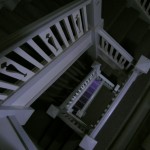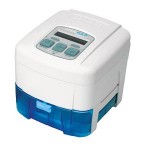 Do you suffer from frequent bad dreams or all-out night terrors that make you wake up screaming?
Do you suffer from frequent bad dreams or all-out night terrors that make you wake up screaming?
Many people who have undiagnosed sleep apnea are subject to nightmares that become yet another troublesome symptom of their serious sleep disorders.
The link between frequent nightmares and sleep apnea is a proven one, and the only way to get relief is through sleep apnea treatments that include the usage of CPAP machines and CPAP nasal masks.
Obstructive sleep apnea is a parasomnia sleep disorder that triggers nightmares and night terrors due to improper airflow to the body and brain during sleep. Typically, people with sleep apnea parasomnia will gasp, snore, and suffer through hundreds of stop-start breathing episodes that leave them feeling tired and unwell during the daytime hours.
Since nightmares may occur in any phase of sleep (you don’t need to be in deep REM sleep to suffer from bad dreams), it is possible to experience very bad dreams that are precipitated by sleep apnea respiratory problems. These nightmares add another unpleasant facet to the experience of living with sleep apnea.
Why Do We Dream?
Doctors and psychologists argue about the role of dreams and nightmares. Many believe that these nocturnal scenes help our brains to process memories, information, and emotions. However, others argue that dreams are quite meaningless, and they are particularly opposed to the idea of dreams as precognition or as a series of symbolic images.
The practice of analyzing dreams and trying to understand them has been around for centuries. Today, many people turn to “dream dictionaries” online, looking for answers to their darkest nightmares or most blissful dreams. However, the jury is still out when it comes to the true purpose of good and bad dreams.
One prevailing viewpoint of doctors who do believe that dreams play an important role is that they are used to integrate new memories into the psyche and to relieve the stress of daytime emotional upheaval, thereby taking the brunt off of very difficult emotions.
Night terrors are on a whole other level; these terrible dreams are an assault on the sufferer, and they must be treated by a doctor and a sleep apnea treatment specialist (if these nightmares are being triggered by sleep apnea).
Sleep studies may be used by physicians to isolate patterns and behaviour in sleep. Treatments after sleep studies may include sleep apnea therapies or medications for nocturnal seizures.
Polysomnography is a very popular diagnostic tool that is used during sleep studies.
Some cases of night terrors may require psychotherapy to ease repressed trauma that may be triggering nightmares. Certain medications may be prescribed, with or without corresponding psychotherapy, and are (most commonly) Tofranil, Benzodiazepine, Klonopin and Valium.
Symptoms of Sleep Apnea
 Aside from frequent nightmares, most people with sleep apnea will snore, gasp and experience breathing stops and starts during sleep. However, the symptoms don’t stop there…
Aside from frequent nightmares, most people with sleep apnea will snore, gasp and experience breathing stops and starts during sleep. However, the symptoms don’t stop there…
If you suffer from frequent morning headaches, mental fog that frustrates you and makes it hard to work, and exhaustion that doesn’t melt away after a little coffee, you may well be a victim of this sometimes-debilitating (but totally treatable) disorder. To say that sleep apnea is hard on your body is an extreme understatement; it actually stresses the heart and raises the blood pressure.
The only way to get a formal diagnosis of sleep apnea is to talk to your doctor about your concerns; he or she knows how to find out the truth. If you do receive a formal diagnosis, it is time to begin therapy with CPAP Machines and CPAP nasal pillows.
Sleeping with a soft, supple nasal mask that is attached to an airflow-regulating “sleep machine” will change the way that you sleep during the night. This treatment may reduce your nightmares, and it will surely make you feel better when you wake up in the morning.
If you want better quality of life and fewer disturbing dreams, speak to a sleep apnea treatment specialist today.

1 thought on “Sleep Apnea and Nightmares”
This is a good illustration of what severe apnea can look like. Challenge with tools like this has to do with the fact that the device can’t differentiate as to whether a person is actually sleeping.